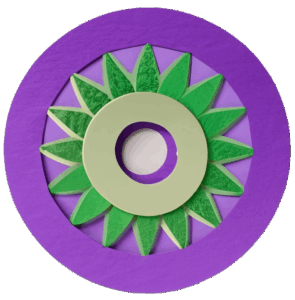Simone Sear
Health & Wellbeing Coach & Workplace Wellbeing Consultant
simone sear coach
Personalised Health & Wellbeing Coaching: Helping You Build a Healthier, Happier Life.
Whether you’re navigating health changes, feeling out of balance, or simply ready to prioritise yourself again – you’re in the right place.
As a certified Health & Wellbeing Coach with a background in counselling, behaviour change, and preventative health, I offer practical, personalised support to help you make meaningful changes that last.
This is coaching for your whole self – grounded, supportive, and designed around your lifestyle, your goals, and your version of wellbeing.
Support for Individuals.
If you’re ready to improve your energy, health, mindset, or habits then I can help. You don’t need to overhaul your life to feel better. Small, sustainable changes are the foundation of long-term wellbeing.
✔ Support with healthy eating, movement, sleep & stress.
✔ Tools to manage change, setbacks & motivation.
✔ Deep listening and space to explore what really matters.
✔ Coaching that meets you where you are – no judgment, no pressure.
Support for Workplaces.
Healthier teams are more focused, energised and resilient. I work with organisations to support staff wellbeing through:
✔ Group coaching & workshops.
✔ Diabetes prevention programmes.
✔ Resilience, stress & lifestyle health education.
✔ Strategic wellbeing consultancy.
A Whole-Person Approach Backed by Experience.
I bring over 25 years’ experience supporting people through change – from one-to-one support to leading organisational health and wellbeing. My approach combines coaching, counselling skills and evidence-based practice and research to help people feel empowered in their own health and lives.
Ready to Take the Next Step?
Whether you’re struggling with stress, looking to improve your lifestyle, or want to create healthier habits or healthier organisations for the long term – let’s talk.
📞 Book a free call – no pressure, just support.
We’ll chat about where you are, what you’d like to change, and how I can help.

about me
Helping People Reclaim Their Health, Energy & Balance - One Step at a Time.
I’m a certified Health & Wellbeing Coach, counsellor, and wellbeing consultant with over 25 years’ experience supporting people through life’s challenges, changes, and pressures.
Whether you’re navigating stress, health concerns, life transitions or just feeling a bit lost in it all, I’m here to help you reconnect to what matters, create healthier habits, and build a life that feels more sustainable and fulfilling.
I work with people from all walks of life, including those managing long-term health risks, chronic illness, carers, busy professionals, and anyone looking to feel more energised, balanced and well in themselves.
Why I Do This Work.
Because I’ve lived it.
Like many people, I spent years putting everything and everyone else first – until I burnt out. That experience changed everything. I had to rebuild from the inside out, learning what sustainable wellbeing really meant for me. Not quick fixes, not perfection, but long-term and realistic change, self-compassion, and clarity.
That journey has only enriched and deepened my passion for preventative health, coaching, and meaningful lifestyle change.
Today, I bring together personal and professional experience, counselling skills, and evidence-based health coaching to help others feel more empowered, healthier and in control of their wellbeing, so they can thrive.
I’ve worked in healthcare, social care, sport, and high-pressure industries – helping people manage stress, avoid burnout, and build healthier lives and workplaces.
How I Can Support You.
One-to-One Health & Wellbeing Coaching:
Helping you build healthy, sustainable habits – whether you’re working on stress, energy, lifestyle change, or managing a health risk like diabetes.
Workplace Wellbeing & Supervision:
Coaching, consultancy and support for individuals, teams, and leaders looking to create more sustainable ways of working.
Diabetes Prevention Coaching:
I’m proud to deliver group and one-to-one support as part of the NHS Healthier You programme – helping people reduce their risk of Type 2 diabetes through practical, empowering changes.
My Coaching Style: Compassionate, Person-Centred & Motivational.
My approach blends empathy with structure. Coaching with me is a supportive, non-judgemental space – but it’s also focused on action, progress at a pace that works for you.
✔ We focus on what matters to you
✔ We set achievable, realistic goals
✔ We work at your pace
✔ We adapt to your life – not the other way around
Coaching Options & Fees:
Free Discovery Call – Let’s chat and see if we’re a good fit.
Coaching Sessions – £70/hour.
Programmes – 10% discount on 6- or 12-session packages.
Affordable Options – Flexible pricing for those on low income.
Organisations & Charities – Bespoke rates available on request.
Let’s work together to create a version of health and wellbeing that feels good, lasts long-term, and fits your life.
My Qualifications & Professional Training:
✔ Certified Health & Wellbeing Life Coach
(Raw Horizon Academy – Accredited by the Association for Coaching & NHS Personalised Care Institute)
✔ MA Health Research (Organisational Health & Wellbeing)
✔ MBA (Master’s in Business Administration)
✔ ILM Certificate in Leadership & Management
✔ Level 4 Diploma in Therapeutic Counselling
✔ NVQ 3 in Health & Social Care
✔ Certificate in Further Education Teaching
✔ BA (Hons) Gender Studies with English
✔ Leading on Adult Safeguarding & Child Protection
✔ Regular CPD & Wellbeing Training to stay updated
I’m a Member of The Association of Coaching and as such I agree to abide by and work to their code of ethics.
